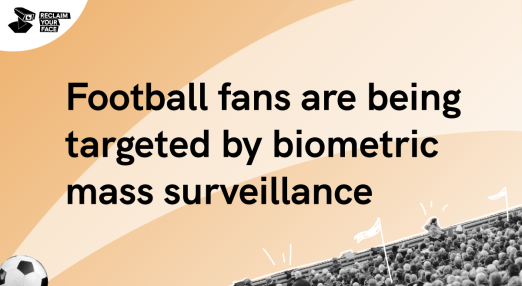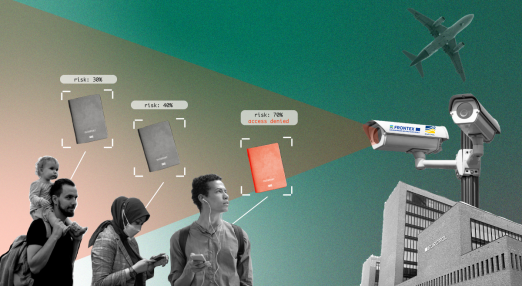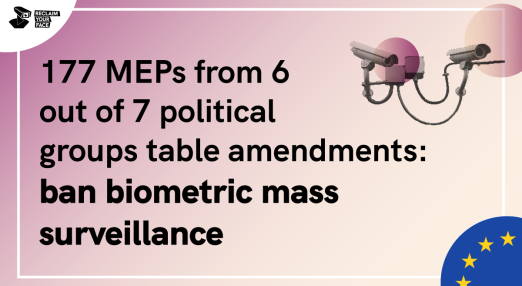Our work
EDRi is the biggest European network defending rights and freedoms online. We work to to challenge private and state actors who abuse their power to control or manipulate the public. We do so by advocating for robust and enforced laws, informing and mobilising people, promoting a healthy and accountable technology market, and building a movement of organisations and individuals committed to digital rights and freedoms in a connected world.
Filter resources
-

Foreign authorities are banning Google and Microsoft services from schools, the Czech Republic is floundering
Jan Cibulka, a journalist for iROZHLAS and member of the Big Brother Awards CZ Jury, organised by EDRi member Iuridicum Remedium, has investigated how Czech authorities and schools are approaching the protection of privacy when using distance learning tools. Such tools send sensitive information overseas, where US law gives intelligence agencies access to it. The tools do not guarantee that children's private chats will not be accessed by, for example, teachers. While the first regional governments in Europe are developing safer alternatives, in the Czech Republic the risk assessment remains up to individual schools. In practice, they have little choice.
Read more
-

Rather delete than comply: how Europol snubbed data subject rights
On 8 September 2022, the European Data Protection Supervisor (EDPS) issued a decision ordering the EU law enforcement agency, Europol, to give Dutch activist Frank van der Linde access to the personal data the agency holds on him following a two-year investigation by the data protection watchdog. Findings of the inspection reveal that Europol tried to cover up the traces of the data processing and to avoid complying with the data access request by deleting van der Linde’s data.
Read more
-

Privacy Defenders: Enabling young people to defend their online privacy
EDRi member Electronic Frontier Norway (EFN) in cooperation with Croatian NGOs NUM and Politiscope will soon finish the implementation of the project Privacy Defenders, supported by the Active Citizen Fund (EEA and Norway). The project aims to build the capacities of young people from a small local community to advocate for and defend their online privacy.
Read more
-

Identity Crisis
Identity systems create and facilitate exclusion, insecurity, and surveillance.
Read more
-

Does Google accuse you of child abuse? Impossible! Right?
The legislator in Europe is working on a proposal that could force companies to scan all messages we exchange for child sexual abuse material. The goal is noble but it can very easily go wrong. And if things go wrong, you might suddenly be accused of sexually abusing children.
Read more
-

Football fans are being targeted by biometric mass surveillance
Apart from its undemocratic nature, there are many reasons why biometric mass surveillance is problematic for human rights and footabll fans’ rights.
Read more
-

Travel surveillance: member states seek to circumvent court judgment on PNR
In June this year the the Court of Justice ruled that the rules governing the EU's system for travel surveillance and passenger profiling, set out in the Passenger Name Record (PNR) Directive, must be "interpreted restrictively" to conform with fundamental rights standards. The ruling requires substantial changes to member state practices - but the Council, in time-honoured fashion, is looking at how to circumvent it, and to ensure the greatest possible freedom of manouevre for law enforcement authorities.
Read more
-

Police plans for the “future of travel” are for “a future with even more surveillance”
Plans hatched by Europol and Frontex to develop a “European System for Traveller Screening” that would require massive data processing and automated profiling have been condemned as ushering in “a future with even more surveillance” by German left MEP Cornelia Ernst, who told Statewatch that “the daily lives of millions of people” should not be shaped by “agencies that long ceased to be controllable by the public and the parliament.”
Read more
-

European Parliament calls loud and clear for a ban on biometric mass surveillance in AI Act
After our timely advocacy actions with over 70 organisations, the amendments to the IMCO - LIBE Committee Report for the Artificial Intelligence Act clearly state the need for a ban on Remote Biometric Identification. In fact, 24 individual MEPs representing 158 MEPs, demand a complete ban on biometric mass surveillance practices. Now we need to keep up the pressure at European and national levels to ensure that when the AI Act is officially passed, likely in 2023 or 2024, it bans biometric mass surveillance.
Read more
-

Gmail creates “Spam Emails”, despite CJEU judgment
On 24 August, EDRi member noyb.eu filed a complaint against Google with the French Data Protection Authority (CNIL). The tech giant has repeatedly ignored the European Court of Justice (CJEU) ruling on direct marketing emails and used its email platform Gmail to send unsolicited advertising emails without valid consent of the users.
Read more
-

EDRi-gram, 14 September
“What you’re saying is, for me to own a car and to drive, I have to submit that my photo and information are going to be used for policing purposes across the entire EU… Are we all walking around as citizens? Or are we all walking around as suspects?”. The European Commission’s Prüm II proposal fails to put in place vital safeguards designed to protect all of us from state over-reach and authoritarian mass surveillance practices. Check out more in the EDRi-gram.
Read more
-

Don’t restrict encryption before alternatives have been explored, says advisory council
The Dutch cabinet should explore alternative regulatory avenues for access to encrypted data, according to its chief advisory council for cyber security. The advice is very interesting for a number of reasons.
Read more
